|
Any fool can have a logo and some advertising.
That’s not what it’s about. Your brand is about people. It’s how your people make the people walking through your door feel. And just last week, something related to that happened right here. That little nugget of brand thinking fell upon us like a ton of gold bricks. The Fabulous Honey Parker and I are working with one of the world’s biggest names in luxury hotel brands. They want a podcast. Yes, you read that correctly: a luxury hotel wants a podcast. This show, which I’ve nicknamed Hidden Hotel, is an internal product. In a big hotel operation, there are always lots of staff members who don’t know each other. This show is an effort to shine a light on the people who serve the brand, letting the staff members see each other taking pride in their work. In producing the pilot episodes, we sat down to record several employees. The staff member who is acting as the host said, “You’re going to love this next guy. He’s great.” She was wrong. He was beyond great. He came into the recording session and sat down at the table. He looks young. His LinkedIn profile suggests he might be in his late 20s. Beneath his beard, he’s fresh-faced and bright-eyed. Like all the employees, he wears a silver lapel pin bearing the hotel’s initials. We asked him, “What do you love about working here?” There was zero hesitation. “I love having high-expectation guests stay at the hotel. “I love people that come in, expecting to have the most perfect stay with us, to have everything that they've ever dreamed of in a vacation come true. I love making memories for people. “Whether it's as small as giving out a smores kit, to upgrading a room and making someone's honeymoon exceptional, I really love working for the [hotel’s] brand. “I take a lot of pride in working for the brand, knowing that it's one the leading luxury brands of hospitality in the world. “I think that it’s special, that it’s something to take seriously, and that wearing [the hotel’s initials] on your chest is something to really take pride in.” Wow. Dude. I was ready to follow this kid onto the frontlines of the luxury hotel business. And I say this as someone who has worked in high-ticket retail and never wants to work with the general public ever again. Never underestimate the branding power of having a staff member who’s a cheery, bright-eyed fanatic for your brand. It can change everything about the business. What’s that? You work alone? Well, guess who has to become that cheery, bright-eyed fanatic for your brand… Cheers, Blaine Parker Your Lean, Mean Creative Director in Park City LIGHTNING BRANDING ON AMAZON The Kindle edition of our new book is now available at Amazon for the bargain price of $19.95. For details about our new Lightning Branding courses, both do-it-yourself and we-do-it-with-you editions, click here. (There's even a video of us!)
0 Comments
Romance, Meet Marketing. And weep.
The action in New Zealand right this minute has little to do with a pandemic, and everything to do with a sickness. At the moment these words are flowing onto the page, it’s the final day of the 2021 America’s Cup racing in Auckland. By the time you read this, the America's Cup will belong to either New Zealand (again), or Italy. You probably don’t care. Most people don’t. If you’ve seen any of the footage on NBC or the interwebs, you know that it’s all speed, all black, all inscrutable. When did yacht racing become a sport filled with crash helmets? The Fabulous Honey Parker asks, "Where are the cup holders?" Yes, this form of sailboat racing and the boats that race in it look a lot different today than they did in 1851. Ah, the romance of sailing. “I don’t like what America’s Cup has become. All the romance is gone!” I’ve heard people say this. What happened to the romance? White sails. Graceful sloops heeling over in the sun as the water does a diamond dappled sparkle in the waters off of Newport. Strapping young men with suntans grinding winches. Loud, middle-aged men barking orders from the helm. Smiling, suntanned women handing over trophies and bottles of frothing-over champagne. Those were the days. You know what? Be not fooled. Like advertising, America’s Cup yacht racing has always been about money. Romance has always been irrelevant. Today’s space-age yachting war of technology and determination is a place where exotic materials meet systems engineering, and it’s all seasoned with towering black sails, crash helmets, and big-money corporate sponsorships. It’s a great metaphor for the culture at large. And yes, the ostensible romance of advertising is also gone. The good ol’ days of advertising have sailed over the horizon. We are left slogging through a morass of technology and terminology. The 21st century digital culture has little to do with writing a message and everything to do with believing that the real message is the delivery system. “If you’re not marketing on social media, you’re missing the boat!” I saw a headline like that just this morning. It made me shake my head. While advertising has never been about romance, it was always easier for the poets to be seen. Writers were the visible heroes of advertising. But at the end of the day, it was never about them, either. Advertising was (and will always be) about money. It’s just that some romantics in the business think they can raise the bar and make people feel something less crass. America’s Cup racing is the same way. The first race in the 1800s was not the product of any romantic notions beyond making money. A group of six New York millionaires formed a syndicate. In case you were wondering, “syndicate” is not a word that has any romantic intent. The millionaires in this syndicate formed it to build a technologically advanced yacht. The six titans of industry involved sat in their offices in New York while a professional crew sailed the yacht to England. The millionaires later followed as first-class passengers aboard a very comfortable steamship. Their mission was to win money in yacht races. These men were gamblers, pure and simple. It also didn’t work out in their favor. They failed in their mission. But their effort spawned the multi-billion-dollar madness that now happens every few years in some part of the world not New York or Newport. The days of white sails with no advertising and the pretense of gentlemanly sportsmanship are over. Yes, the visual poetry and thematic fabrications are gone. The game has become such a huge, technology-powered cash vacuum that it requires more sponsor dollars than anyone ever knew existed. And at the end of the day, then as now, it’s still about people who want to make money. It has just left any possibilities of sailing romance as we know it behind. And so it is with advertising. Sales messages are ubiquitous. Maybe there’s no hope for bringing back the romance of America’s Cup yachting that never really existed. There’s also probably no hope of bringing back the romance of the glory days of Madison Avenue, which also never really existed. But it is possible to remember the one thing that never changes. Romance is just one of many thematic components that inspire customers to buy. Maybe romantics like us can push past the ignorance of media chauvinism and aim for the juicy center of the person to whom we’re selling. Maybe then, we can all feel better about selling better by making people feel better about buying. And we can all feel like we’re sailing on the wings of a more poetic day of gentle waves and sea breezes with nary a black sail in sight. Cheers, Blaine Parker Your Lean, Mean Creative Director in Park City LIGHTNING BRANDING ON AMAZON The Kindle edition of our new book is now available at Amazon for the bargain price of $19.95. For details about our new Lightning Branding courses, both do-it-yourself and we-do-it-with-you editions, click here. (There's even a video of us!) "Scared, but inspired."
I just sent a recipe to a friend. It’s about as simple as a recipe gets. The basics: combine flour, water and pineapple juice. Let it sit. And that was her reply: “Scared, but inspired.” Yes, she’s scared. But why is this so daunting? I get it. I’ve been there. A little backstory… Lockdown has been productive. Being forced to spend time inside has forced a realization of some simple pleasures. Like so many other folks during this bizarre time in history, my friend has rediscovered the actual joy of cooking. This friend also suffers from some actual, medical issues related to gluten. (Yes, she actually knows what gluten is. She’s not a victim of pop-culture anti-wheat fashion. She has not stopped trying to “Save the whales” in an effort to “Free the gluten!”) She and I were talking about how, for some people like her, organic flour and actual wild-yeast sourdough bread can be indulged without medical challenge. She wants to try baking wild-yeast bread. So I offered to send her a recipe sourdough starter. And it is insanely simple. It requires flour, water and pineapple juice. You let it sit for a few days. Periodically, you add more water and flour. And wait. That’s it. It also scares the crap out of people. Look at me. It took me years between first seeing the recipe and actually trying it. And I have a theory about why this is such a daunting undertaking. The process is so simple and the result so lovely, it seems like dark magic. To make such minimalism and austerity come alive in the joy of fresh bread, we feel we need to know some secret, some kind of voodoo, that we must possess some finger of God to make these things work. I suspect that part of the problem is we know too much about too many things. An uneducated peasant who can make bread from flour and simple liquids doesn’t know much at all. For instance… Why the hell is there pineapple juice? Simple science. Yeast thrive in an acidic environment. Hence, pineapple juice makes them happy. But once you know this, you start to wonder what else you don’t know. And the unknown looms large. You wonder, Can I do this dark magic that delivers the staff of life from mundane materials? As a result of all this wondering and thinking, people screw it up all the time. Writing advertising is the same way. It's a simple task that people screw it up all the time. With advertising writing, it’s often so hard to see the simple, straight line between the basic business and the best message. Writing, writing, writing. And what happens is nothing, nothing nothing. As failed taxidermist cum famous journalist Gene Fowler once said, “Writing is easy. All you do is stare at a blank sheet of paper until drops of blood form on your forehead.” But it’s just not that hard to write. Writing well? Well, maybe that's harder. But still, if you let it happen, it’s just the right words on paper. As the famous New York Evening Sun columnist (and second husband of Kurt Vonnegut’s first wife) Don Marquis once wrote, “I never think when I write. Nobody can do two things at the same time and do them well.” Which might explain my friend’s response. “Scared, but inspired.” Think too much about it, and it seems impossible. Stop thinking about it, and it becomes attainable. So much in life seems to work out better when thinking steps out of the way of acting. And in the case of sourdough starter, it’s as simple as anything can get. Yeast are just fungi. Give them the right food, and they do all the hard work. All you have to do is stop thinking and get out of their way. And as the unknown copywriter and award-winning third husband of renowned novelist The Fabulous Honey Parker once said... Bread happens. If you let it. Cheers, Blaine Parker Your Lean, Mean Creative Director in Park City LIGHTNING BRANDING ON AMAZON The Kindle edition of our new book is now available at Amazon for the bargain price of $19.95. For details about our new Lightning Branding courses, both do-it-yourself and we-do-it-with-you editions, click here. (There's even a video of us!) Why on earth would you write 100 headlines?
“I’m not feelin’ it.” OK, that’s not exactly the line Honey used, but it might as well have been. She was talking about the headline I’d just given her for a client’s home page. The client is very smart. She’s funny. She enjoys a laugh. And she unafraid of smart writing. She also has an unusual job. That’s why she ended up with an unusual headline. It’s a headline that would make some clients very afraid. This client is a Certified Divorce Financial Advisor. Yes, such a thing actually exists. It seems the financial decisions made in divorce are often uninformed and emotional. For instance… “I want the house!” That’s a great thing to want. But can you afford it on only one income while you’re crying in your soup? And lawyers are not typically trained to examine such things. They’re merely trained to “make it so.” “I want the house!” “Let’s make it so!” A CDFA asks, “But can you afford the house?”, then looks at the numbers. Hiring a Certified Divorce Financial Advisor means making smarter financial decisions. You end up with a divorce that’s fundamentally healthy and doesn’t leave anyone twisting in the breeze of financial devastation. The headline I’d first given to Honey was so prosaic, I can’t even remember what it said. Honey, doing the right thing, rejected it. So I sat down and wrote many, many more headlines. I probably hit 42 possible headlines of varying degrees of electricity before writing this one… “Why let bad financial decisions ruin a perfectly good divorce?” I liked it immediately. And I kept writing. Because writing something you like doesn’t mean the job is done. There is always more, and there might be better. Too often, a writer stops as soon as there are words on the page. That’s not how copywriting gets to a place of surprise that inspires response. There were close to 100 possible headlines in the writing that happened for this client. Some of that material ended up as subheads, headlines for other pages, and body copy. But when I read aloud, “Why let bad financial decisions ruin a perfectly good divorce?” Honey laughed, I laughed, and we knew it was a winner. And when we presented it to the client, she laughed, too. And we all laughed for the right reason. Better than that, our Certified Divorce Financial Planner understood it to be just the kind of sentiment she needs to surprise her core client into responding to her message. And she loves where her brand is going. It’s smart, funny, informed, concerned, friendly and approachable. Those things don’t happen by accident. This is another page from the Purpose & Intent Playbook. No copywriting happens in a snap. As the very famous Mary Heaton Vorse once said, “The art of writing is the art of applying the seat of the pants to the seat of the chair.” Sitting and writing past the first thought is how the writing gets to a place that makes you say, “Hey, this feels a little dangerous, but in a good way,” instead of “Well, I filled up the space.” Write yourself into The Zone. Let flow happen. Write more than you need to. And stop thinking about it. Just sit. Write. And Win. Cheers, Blaine Parker Your Lean, Mean Creative Director in Park City LIGHTNING BRANDING ON AMAZON The Kindle edition of our new book is now available at Amazon for the bargain price of $19.95. For details about our new Lightning Branding courses, both do-it-yourself and we-do-it-with-you editions, click here. (There's even a video of us!) |
AuthorBlaine Parker is prone to ranting about any and all things related to brand. In many ways, he is a professional curmudgeon. While there is no known vaccine for this, the condition is also not contagious. Unless you choose it to be so. Archives
February 2022
Categories
All
|
|
© Copyright 2020 Slow Burn Marketing LLC |
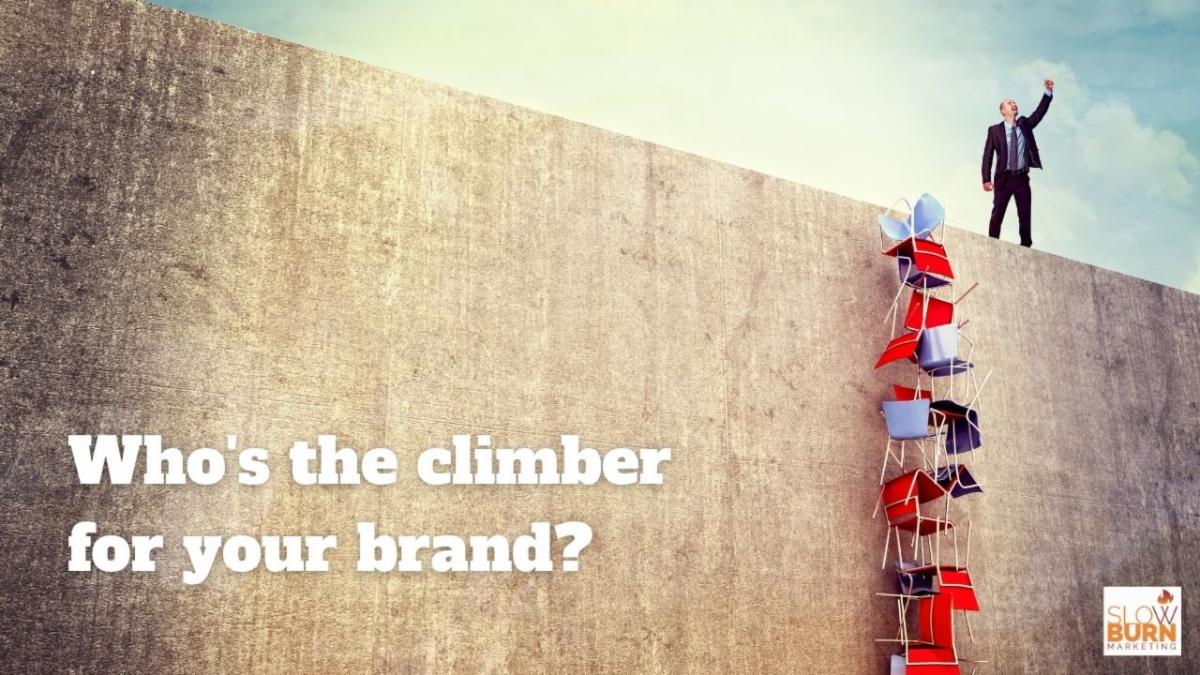
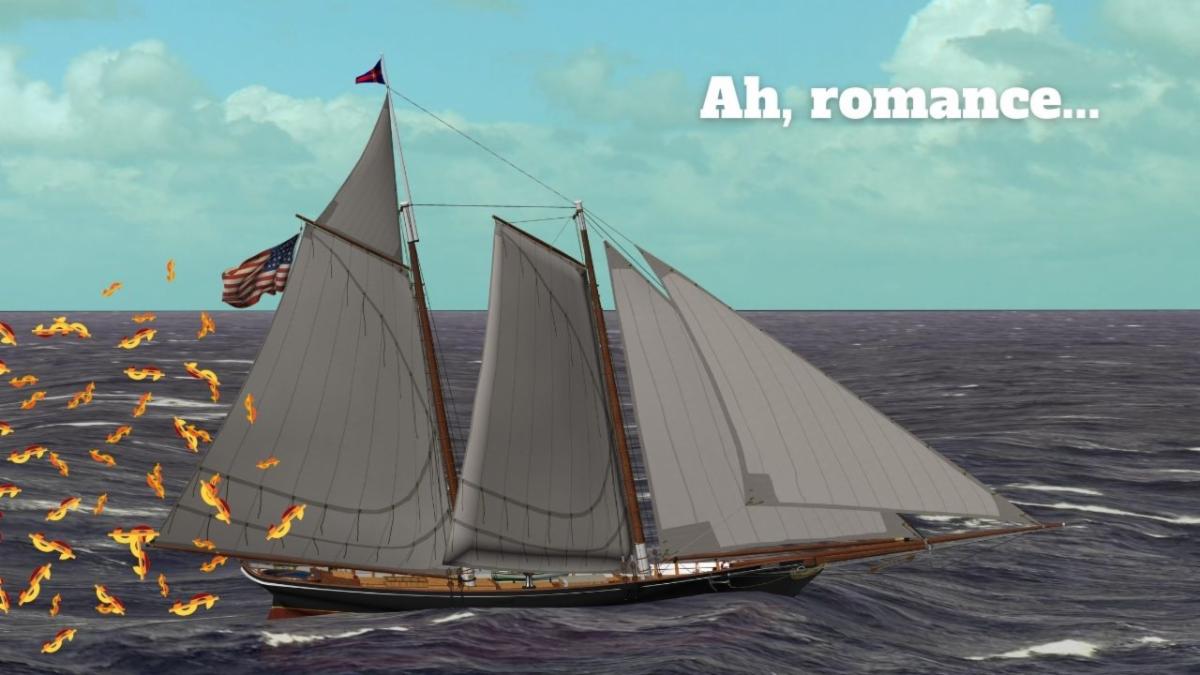
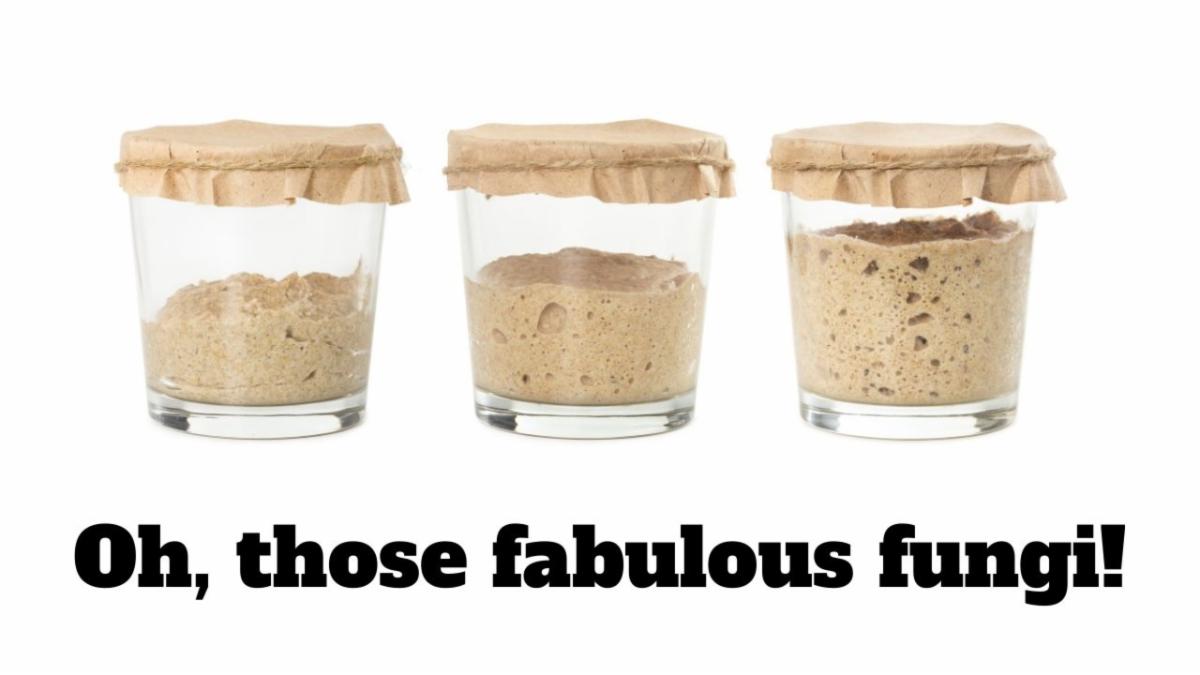
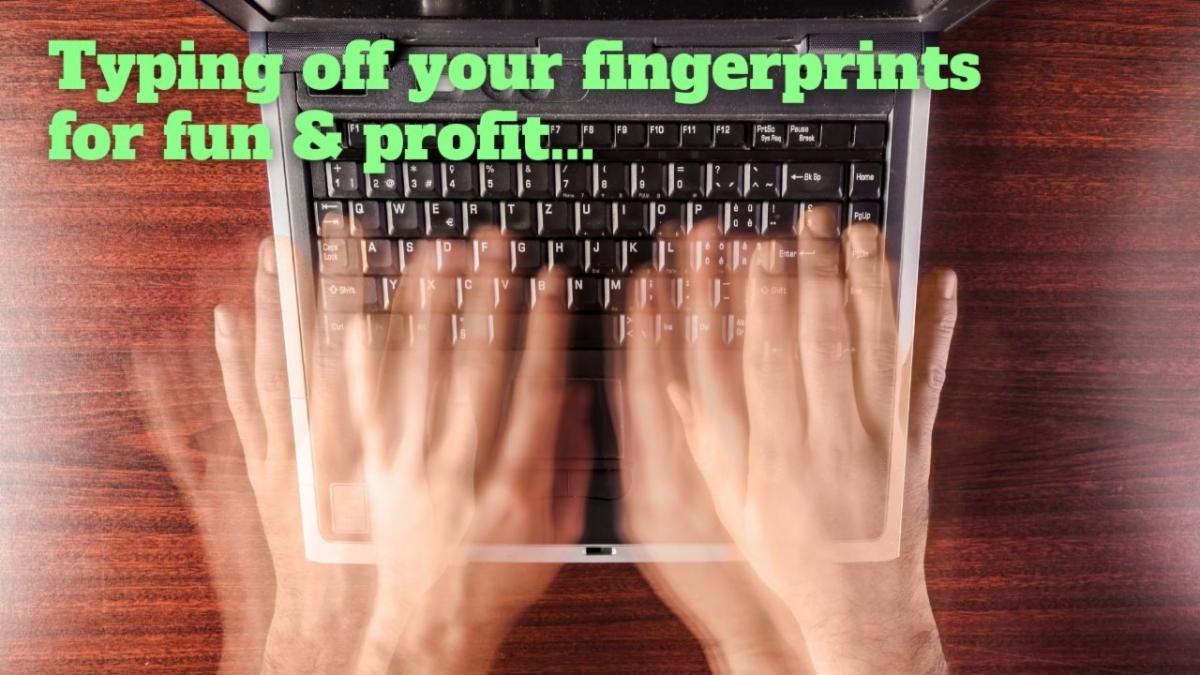
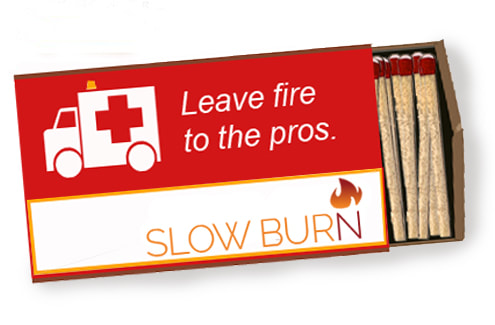
 RSS Feed
RSS Feed

